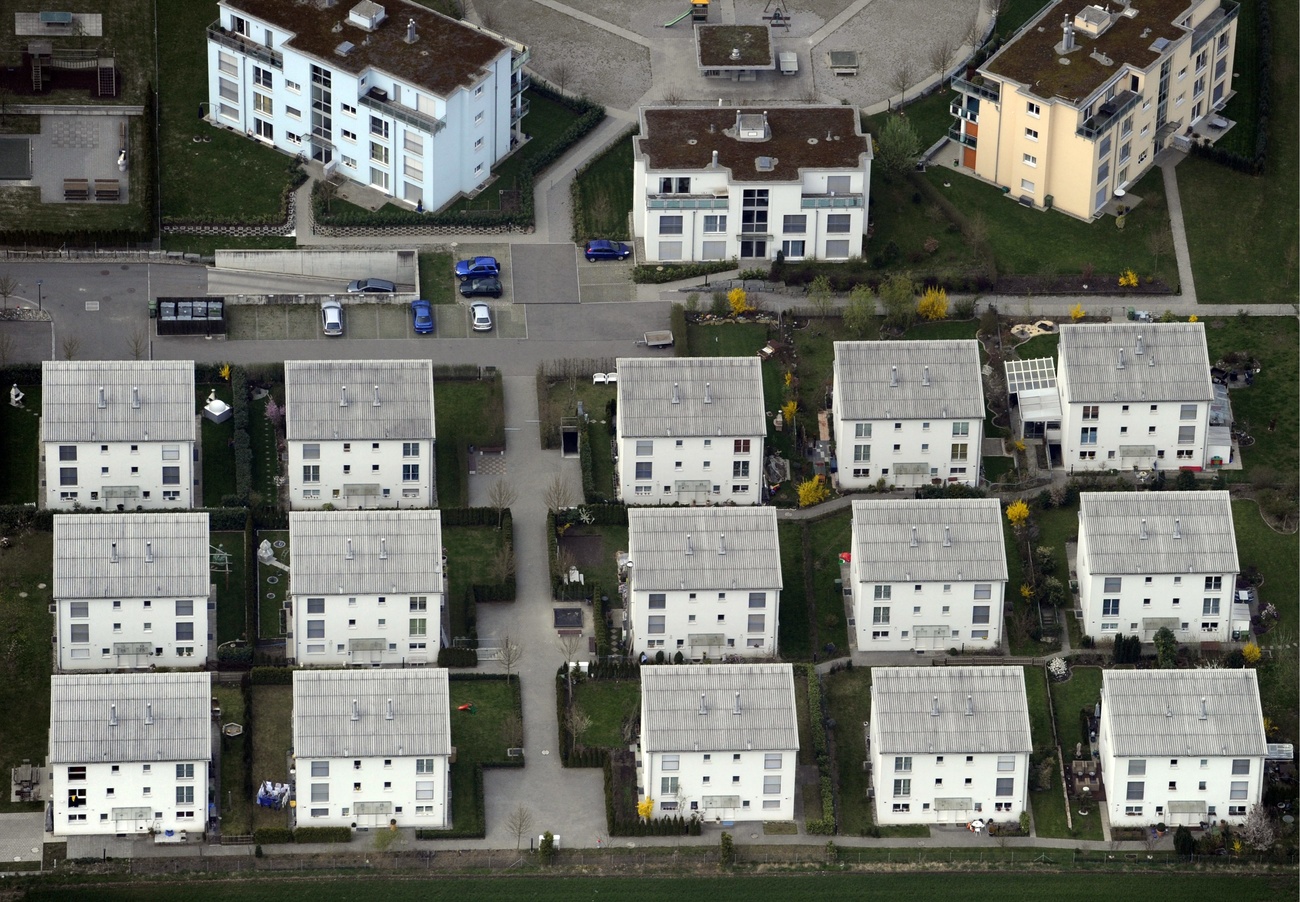
Switzerland faces shortage of 51,000 homes, says study

By 2026 there is likely to be a shortage of 51,000 homes in Switzerland, equivalent to a city the size of Lucerne, according to an estimate by the real estate consultant Wüest Partner, cited by NZZ am SonntagExternal link.
The problem is being caused by a combination of factors: a steadily growing population (currently 8.7 million), a trend towards smaller properties and an insufficient number of new apartments and houses being built – building permits have fallen to a 25-year low.
Switzerland is heading towards its biggest housing shortage in 30 years, according to the NZZ.
The immediate result is rising housing costs for tenants, NZZ says. Although rental increases are capped by law, the shortage is driving up rents. Higher tenancy agreements are only contested on rare occasions.
+ Wealthy Switzerland is a country of tenants.
Switzerland has one of the lowest home ownership rates among the richest economies. Only around 40% of people own their own properties while the rest rent. This makes Switzerland an exception as the proportion of homeowners in Europe is routinely around two-thirds or more.
Swiss tenants are protected by laws that restrict large rental increases, but increasing demand for apartments, especially in cities, continues to drive up rents.
+ Swiss tenants ‘ripped off’ to the tune of CHF10bn.
On February 20, the Swiss Tenants’ Association complained that landlords are profiteering by ignoring rules that limit rent rises. It said unscrupulous property owners are swindling tenants out of CHF10.4 billion ($11 billion) a year in Switzerland. The advocacy group wants lawmakers to cap “exploding” rents that is says are squeezing people on low incomes.

In compliance with the JTI standards
More: SWI swissinfo.ch certified by the Journalism Trust Initiative






























You can find an overview of ongoing debates with our journalists here . Please join us!
If you want to start a conversation about a topic raised in this article or want to report factual errors, email us at english@swissinfo.ch.